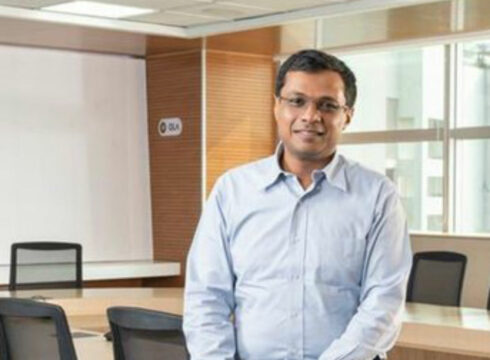SUMMARY
The Flipkart cofounder has been leading the charge towards digital banking with Navi Technologies
Navi acquired CRIDS to strengthen its lending ambitions
The company has also applied for universal banking license
Inc42 Daily Brief
Stay Ahead With Daily News & Analysis on India’s Tech & Startup Economy
After being one of the earliest entrants in the Indian ecommerce space, Sachin Bansal is now working to disrupt the financial services industry. Bansal has been leading the charge towards digital banking with Navi Technologies, which was launched in December 2018 by Bansal and Ankit Agarwal as BAC Acquisitions.
Further, to further strengthen lending tech, it acquired Chaitanya Rural Intermediation Development Services Private Limited (CRIDS) in September 2019 and Bansal took over as the CEO of the company.
CRIDS, which runs Chaitanya India Fin Credit (CIFCPL), provides the underbanked audience in rural areas access to the credit market through loans for two-wheelers, housing, small business and education. To complement this ambition, CRIDS applied for a universal bank licence through that entity under the Reserve Bank of India’s on-tap licensing policy.
His plans to launch a digital bank have been in the public for long, and now he has come up his vision for the future of banking in the country. In an interview with BloombergQuint, Sachin Bansal said that purely digital banks, which countries like Singapore are experimenting with, are the future of banking. Navi Technologies, he hopes, will be a part of this future.
Financial services in India is still working in the “Web 1.0” era, Bansal said, emphasising that the sector is ripe for technology-driven disruption. “We are tech-first and will be building a lot of technologies in-house and will be flexible, and will move fast. We will be mobile-first, and then there will be physical outlets, which will be a support to the mobile channel, rather than another way around,” Bansal said.
Bansal explained that his plan is to use technology to reach customers in a low-cost manner and then simplify experiences and products to make them more accessible.
Bansal is said to have poured in over $450 Mn into Navi. His investment is being seen in the light of his $1 Bn exit from Flipkart when Walmart acquired the company. To this, Bansal says that he brings “perpetual” capital. “The capital I bring is perpetual capital. I realised very early on that you have to think long term in financial services. You can’t do that with capital that’s short term,” Bansal said.
While so far Navi has seen Sachin Bansal and Ankit Agarwal investing themselves, the International Finance Corporation (IFC) is looking to invest $30 Mn for a 4.5% stake in Navi Technologies. According to an IFC disclosure notice, the transaction values the new venture at around $650 Mn (INR 2100 Cr).
DataLabs by Inc42 noted that with $2.6 Bn in total funding, fintech startups recorded 125 deals in 2019. The funding amount is 71% higher than 2018 whereas the deal count plunged by 9% compared to the previous year with Delhi NCR taking the lead.
Note: We at Inc42 take our ethics very seriously. More information about it can be found here.


